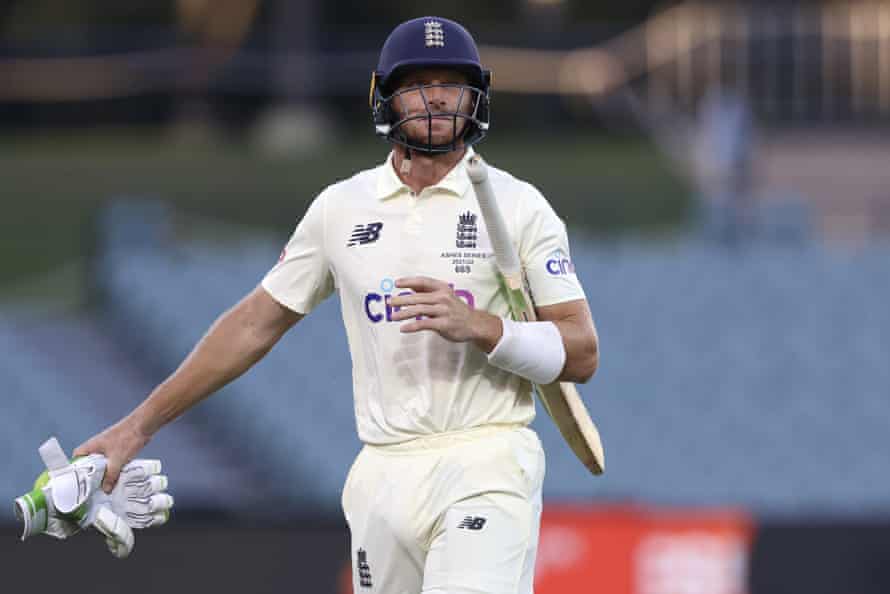This Ashes series was always going to end with some England players facing questions about their international future, and for one of them, the ending and the questions came a little earlier. Jos Buttler’s injury has spared the selectors the decision to retain him in the squad for the final test in Hobart, but has forced England to think about who will hold the ground this week and in the future as well.
There have always been high expectations from Buttler due to his excellent form at cue ball cricket, but precisely after 100 innings into his test career, we have seen little sign of a transfer of that form. I remember working with him in Abu Dhabi when England played Pakistan there in 2015. He was struggling a bit and after he was out of the third test, we went online and he downloaded a lot of things that were on his. mind. It all came down to a lack of confidence and understanding of top-notch cricket, and an uncertainty about how to play at No. 6 or No. 7 when the scoreboard may not dictate your approach. In one-day cricket, you might be leading a chase and knowing you need six over, or when you hit first, you might need to tap into a power play, but test cricket is not formulated the same way.
In that net session, I suggested to him that I should throw some balls at him and that he should play each ball on its merits, and he seemed to misunderstand that concept. It led me to think that there is so much premeditation in one-day cricket that some players who excel in that format never adapt to the ebb and flow of test cricket.
Buttler came to the Ashes having excelled in the Twenty20 World Cup, and is still probably one of the top five one-day players in the world. But the contrast between his performances for Eoin Morgan’s white-ball team and those for Australia has been stark, seeing him standing in the crease, lead feet, his weight back, unable to play shots with authority.
When Ed Smith brought him back on the sidelines, it was to be an aggressive hitter with the bat at No. 7, to go out there and play fearlessly, but we’ve never seen that. Here’s a lesson for selectors and captains: it’s not enough to pick a player and say, “I think you can do this role.” The player also needs to believe it. I remember that in my career I had been left out of the first Test in Jamaica, but before the second game of the series, Michael Atherton asked me to be the third bat. At this stage I had played nine rounds with a maximum score of 64, the confidence I had felt that my debut had slowly faded through repeated failures, and I was very surprised that he asked me to hit off Robin Smith and Graeme Hick. Michael would say he had confidence in me, but the player himself has to believe it. I wrote down two and five.

During my time working with England, if you feel like a player’s strength is to hit aggressively, you would encourage him to play that way, regardless of the team’s position in the game, but ultimately the player has to go out and play. . This is where role clarity really matters. The only truly successful Jos Buttler Test inning I remember is his 75th at Old Trafford when he and Chris Woakes combined to beat Pakistan in 2020, playing brilliantly on a difficult field, but that match had almost turned into a chase of a day.
Wicketkeepers are the heartbeat of a cricket team and they should be bubbly and energize the rest of the team, but in the cricket I’ve seen on this tour, Buttler looks unmoved. Of course, some players do this more than others, but if you’re in that role and you’re not bringing that energy, you’re fighting for runs and you’re losing catches, then what exactly are you contributing?
As a wicketkeeper, Buttler is averaging 29.6, while Jonny Bairstow lost his gloves despite averaging 37.4. It’s hard to quantify someone’s character and presence in a locker room, and Bairstow’s stats are so superior that there must be something beyond individual performance that has kept Buttler on the sidelines, but it’s a decision that seems increasingly difficult. to justify.
The Spin – Sign up and get our weekly cricket email.
Of those in line to replace him this week and going forward, Bairstow remains a decent option, but for now he has been ruled out with a thumb injury. Sam Billings is a player that Graham Thorpe and I have always been on the lookout for due to his orthodox technique and good basics, and he can seize an opportunity if given one. Ollie Pope has held up well in Sydney and I think he has a very bright future as long as he manages it properly, but it would be strange to see him regularly holding the wicket for England when he doesn’t for Surrey, who in Ben Foakes has the player. widely regarded as the best goalkeeper in English cricket.
Joe Root talks about a Test Match team reboot and if his intention is to pick players with long-form cricket in their DNA, people who would focus their attention entirely on first-class play and who could form the backbone of a new -look. team, it seems to me that Foakes is just that kind of cricketer. I think a lot of people in the game have been surprised not to see him play for England more often, but maybe his time is yet to come.
www.theguardian.com
George is Digismak’s reported cum editor with 13 years of experience in Journalism